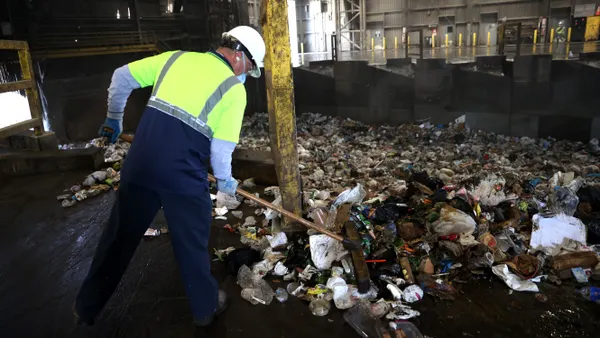Dive Brief:
- Federal lawmakers have introduced a bill that would raise the nation's minimum wage to $15 per hour, according to the House Committee on Education and Labor. Rep. Bobby Scott (D-VA) and Sen. Bernie Sanders (I-VT) introduced the measures, with 181 and 31 cosponsors, respectively.
- The Raise the Wage Act of 2019 would gradually raise the federal minimum wage from $7.25 to $15 by 2024, according to a fact sheet. Additionally, it would "index future increases in the federal minimum wage to median wage growth" to prevent the value of minimum wage from eroding, the fact sheet said.
- The law also would do away with the tipped minimum wage and subminimum wage certificates for workers with disabilities.
Dive Insight:
When color coded by minimum wage standards, a map of the U.S. looks like of a patchwork quilt. By enacting a threshold that surpasses the vast majority of current minimum wage laws, the Raise the Wage Act could make most of them largely irrelevant. It's potential for success, however, remains to be seen as economists, business owners, legislators and other leaders debate such an increase's effect on employment, wages and the overall economy.
The national minimum wage has sat at $7.25 per hour since the Fair Minimum Wage Act of 2007 went into full effect in 2009. But many employers have dealt with minimum wage changes — or at least pushes for changes — during the last 10 years. While Congress has seen the Fair Minimum Wage Act of 2013, a similar measure in 2014, the Pay Workers a Living Wage Act of 2015 and the Raise the Wage Act of 2017 all largely languish in committee, boosts to minimum wage have enjoyed success at the state level.
Nineteen states rang in the new year with new minimum wage standards. Wage-lifting legislation also went into effect on New Year's Day in 24 cities and counties, according to the Economic Policy Institute. In New York City, the minimum wage for employers with 11 or more workers jumped more than 15% on Dec. 31 to $15 per hour.
While many workers in the waste and recycling industry earn more than $15 per hour, that isn't the case for all positions. MRF sorters, collection helpers and other titles that are considered entry-level in certain regions would likely be affected by a national increase.












